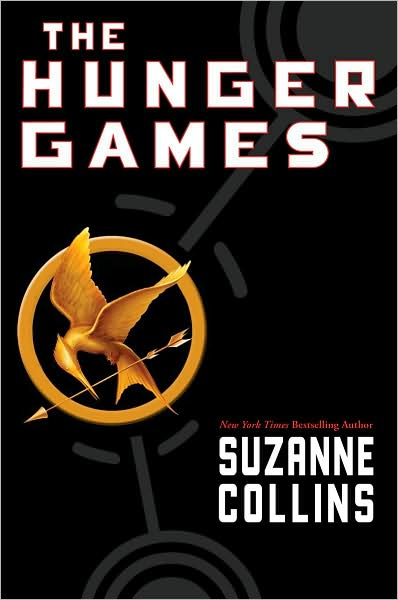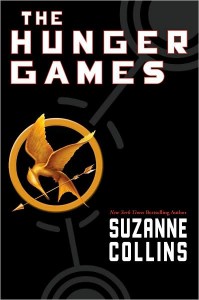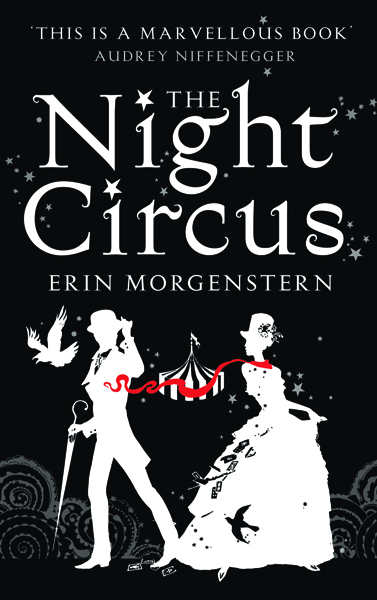By Wesley Sharer
In the wake of the recent adaptations of Ender’s Game and The Hunger Games, science fiction readers everywhere are salivating for more visions of the future — heavy on fun and light on pretense. These five books are all highly acclaimed classics that are also easily accessible for any audience. All of them have been made into audiobooks for readers on the go, and many have also been made into movies for those who prefer to see the authors’ visions come to life on screen. Some of them have spaceships and interstellar travel and feel more like the future envisioned by Ender’s Game, while others feature dark and more pessimistic dystopian societies like The Hunger Games. All of them are great reads for the young adult crowd, as well as more mature readers.
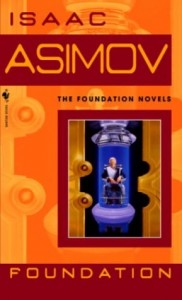 1. Foundation by Isaac Asimov
1. Foundation by Isaac Asimov
This is my favorite science fiction book of all time. It’s absolutely massive in scope (spanning over a century), but doesn’t get bogged down with meaningless details (it’s only 255 pages). It’s divided into five parts, with each part describing a crucial period in the history of the Foundation universe. The real highlight here for me is the characters. Because of the amount of time that passes in the novel, the story doesn’t follow just one character. While for a lesser novel, this may result in poor character development, for Foundation it works wonderfully. The protagonist from each section of the novel shares traits with each of the others, so that by the end of the book Asimov has created the most rich and dynamic universe in my experience and given the reader a vision of the people who created it. Hari Seldon is an infamous psychohistorian who has predicted that the Empire which controls the known universe will soon collapse. In order to shorten the interregnum, which must inevitably follow, he establishes the Foundation on Terminus, a planet distantly remote from the center of the universe on Trantor. But his true motivation behind establishing the Foundation is something nobody could have foreseen.
Audiobook: Read by Scott Brick
Movie: None — But if I could request one quality adaptation of any book, it would be this one.
Similar to: Ender’s Game
 2. Nineteen Eighty-Four by George Orwell
2. Nineteen Eighty-Four by George Orwell
This iconic dystopian vision of the future is more relevant today than it ever has been. Of course there’s the obvious parallel of Big Brother and the recent scandals regarding the intrusion of the American government into the privacy of its citizens, but there’s a deeper parallel here. George Orwell wrote Nineteen Eighty-Four in the wake of the failure of communism, and as such its story reflects a society that has become paralyzed. In the background there’s a haunting sense of a revolution which was supposed to bring the paradise of a new form of government—a revolution which was hijacked and used instead as a way to maintain a state of stagnation. Perhaps most importantly of all, Nineteen Eighty-Four is a joy to read, even by today’s standards. Winston Smith is a member of the Outer Party, the intermediary between the Inner Party (the 2% of the population with 90% of the power) and the Proles (the masses who exercise no political influence). He decides against his better judgment to commit the dual treacheries of keeping a diary and falling in love, and he knows he can’t escape the Thought Police forever.
Audiobook: Read by Frank Muller
Movie: Several adaptations, the best of which is probably the 1984 film directed by Michael Radford starring John Hurt.
Similar to: The Hunger Games
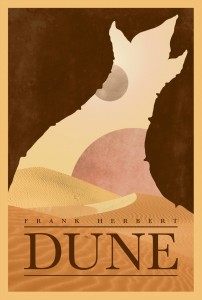 3. Dune by Frank Herbet
3. Dune by Frank Herbet
This is the longest of the books I’ll be recommending here, which means a couple of things. First of all, it has perhaps the biggest payoff because of the emotional investment you’ll have made in the characters along the journey. It also means, rather obviously, that it’s a long book and perhaps slightly harder to get into than the other books I’m recommending. It definitely has an epic feel to it, and while some of the characters are hard to keep track of at first, the important ones will easily stick, and if you make it through to the end, it’s well worth the effort. The film adaptation takes place primarily on three planets with the focus on Arrakis, the desert planet from which is harvested the spice Melange, the most valuable substance in the universe. When the planet is placed under the political power of house Atreides, they think they’ve been given a truly valuable resource. But the planet is much more dangerous than it first appears, and House Harkonnen will not let it be controlled easily.
Audiobook: Read by Scott Brick
Movie: Adapted (with questionable fidelity) by David Lynch starring Kyle MacLachlan
Similar to: Ender’s Game
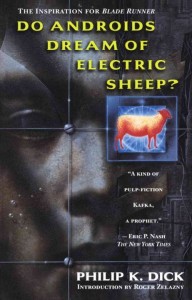 4. Do Androids Dream of Electric Sheep by Philip K. Dick
4. Do Androids Dream of Electric Sheep by Philip K. Dick
Philip K. Dick’s most popular novel, Do Androids Dream of Electric Sheep was also the inspiration for one of the most influential science fiction films of all time, Blade Runner. There’s a reprint of the book which even bears this new title. There are similarities between the two, but as you may expect, the book is much deeper in terms of its themes and character development. The book deals with the nature of what it means to be human in a world which, like our own, is becoming increasingly artificial. Rick Deckard is a bounty hunter whose job is to track down and “retire” renegade humanoid androids, or “andies.” A group of the latest version of humanoid androids, the Nexus 6, has illegally left Mars to come to Earth, and they befriend the dim-witted but lovable “special” J. R. Isidore. Unfortunately, these are precisely the andies Deckard is tasked with destroying.
Audiobook: Read by Scott Brick
Movie: Adapted by Ridley Scott into Blade Runner starring Harrison Ford (and Philip K. Dick approved)
Similar to: The Hunger Games
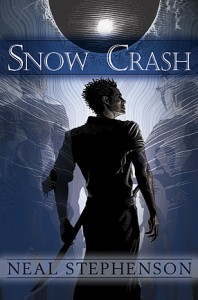 5. Snow Crash by Neal Stephenson
5. Snow Crash by Neal Stephenson
This was my favorite science fiction novel in high school (even above Ender’s Game), and appropriately enough I think this is probably the most accessible of my recommendations for young audiences. Many of the others feature slower stories or aging protagonists, but Snow Crash has a younger and more modern protagonist and contains what is perhaps the most accurate vision of the future (it predicted the internet). The book also has a wonderful sense of humor (the main character is named Hiro Protagonist) and as deep themes as any of the other books on this list, so it should be enjoyable by readers of any age. Hiro is a hacker who discovers a new drug on the market called “Snow Crash,” which affects both its victim’s online avatar as well as their real life body and mind. When he investigates the phenomenon, he finds himself caught up in a plot much bigger than himself.
Audiobook: Read by Jonathan Davis
Movie: None — But Joe Cornish has signed on to direct one, so maybe soon?
Similar to: The Hunger Games
Honorable Mention: More from the Ender’s Game series:
While most people who have read The Hunger Games followed suit with Catching Fire and Mockingjay, many Ender’s Game fans may not have read the rest of the books in the Ender’s Game universe, and they should! The series is split into two main story arcs: one which follows Ender, and one which follows Bean. The next Ender book takes place thousands of years after Ender’s Game, and as such is a bit hard to get into unless you enjoy Orson Scott Card’s writing style. In my experience, the easiest book to get into after Ender’s Game is Ender’s Shadow, the first book in the Bean series. It takes place during the same period of time as Ender’s Game, and provides details which enhance the experience of that book and give you a new perspective. All the books are good in their own ways, and all of them add new layers to the universe first created in Ender’s Game.
Audiobook: There are audiobooks for all of the books in the Ender’s Game universe, and they’re all very good. Orson Scott Card values audiobooks highly and even created Ender’s Game Alive, an audioplay based on the universe created by all the books in the Ender’s Game series.

